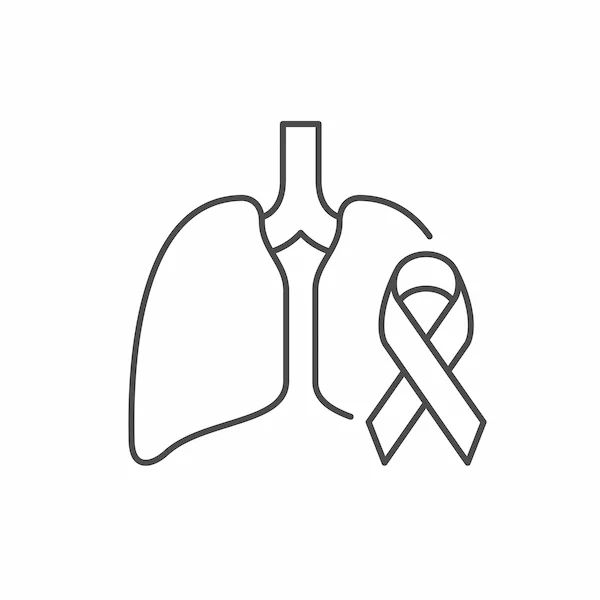Coughing Up Blood: A Guide to Causes and Urgent Action
Discover the causes of coughing up blood, what immediate steps to take, when to seek emergency care, and how doctors diagnose and treat hemoptysis. Stay informed and prioritise your health.

Written by Dr. Dhankecha Mayank Dineshbhai
Reviewed by Dr. Md Yusuf Shareef MBBS
Last updated on 13th Jan, 2026
.webp?tr=q-80,f-webp,w-350,dpr-2,c-at_max 700w)
Introduction
Noticing blood in your cough can be a shocking and frightening experience. Your mind might immediately jump to worst-case scenarios. While coughing up blood, medically known as hemoptysis, is indeed a symptom that warrants serious attention, it is crucial to stay calm. It does not always signal a life-threatening condition, but it always signals that your body needs a professional evaluation.
This guide walks you through exactly what to do, from the moment you first see blood to understanding the potential causes and the diagnostic process. You will learn how to assess the situation, when to seek emergency care, and what to expect from your doctor. If your symptoms are severe or you are unsure, consult a doctor online with Apollo24|7 for immediate guidance or head to the nearest emergency room.
What Does Blood in Phlegm Actually Look Like? (Hemoptysis vs. Pseudohemoptysis)
It is important to distinguish where the blood is coming from. Not all blood from the mouth originates in the lungs.
True Hemoptysis: Blood from the Lungs
This is when the blood comes from your lower respiratory tract—your lungs or bronchial tubes. It is typically coughed up and mixed with phlegm (sputum). The blood might appear:
- Bright red or rust-coloured
- Frothy because it is mixed with air and mucus
- In streaks within normally coloured phlegm
- As purely bloody phlegm
Pseudohemoptysis: Blood from Other Sources
This mimics hemoptysis but comes from elsewhere, like your nose, throat (from a severe nosebleed that drains backwards), or even your stomach. Vomiting blood (haematemesis) is different; it is often darker, like coffee grounds, and may be accompanied by nausea. If you are unsure, a doctor can quickly help determine the source.
Consult Top Pulmonologists
Common Causes of Coughing Up Blood
The reasons for coughing up blood are varied, ranging from mild irritations to serious medical conditions.
1. Respiratory Infections (Bronchitis, Pneumonia, Tuberculosis)
Severe, prolonged coughing from acute or chronic bronchitis is a very common cause of seeing blood streaks in phlegm. The violent coughing can rupture small blood vessels in the airways. Pneumonia and tuberculosis are more serious infections that can cause inflammation and damage lung tissue, leading to blood-tinged or even bloody sputum.
2. Chronic Conditions (COPD, Bronchiectasis)
Chronic Obstructive Pulmonary Disease (COPD), including emphysema and chronic bronchitis, often involves inflammation and fragile airways. Bronchiectasis is a condition where the airways are permanently damaged and widened, making it difficult to clear mucus and prone to infections and bleeding.
3. Cardiovascular Issues (Pulmonary Embolism, Heart Failure)
A pulmonary embolism (a blood clot in the lung) is a medical emergency that can cause sudden coughing, chest pain, and coughing up blood. Congestive heart failure, specifically mitral valve stenosis, can lead to a build-up of fluid in the lungs (pulmonary oedema), which may be tinged with blood.
4. Other Serious Causes (Lung Cancer, Trauma)
Lung cancer is a concern, especially in long-term smokers. A tumour can erode into a blood vessel. Physical trauma to the chest can also cause lung contusions and bleeding.
Immediate Steps to Take When You Cough Up Blood
Your actions in the first few moments are important.
Stay Calm and Assess the Situation
- Panic will not help. Take a deep breath. Sit down if you feel lightheaded. Focus on evaluating what is happening.
Note the Details: Colour, Amount, and Frequency
This information is vital for your doctor. Try to remember:
- Colour: Bright red, dark red, rust-coloured, pink and frothy?
- Amount: A few streaks, a teaspoon, or more?
- Duration: Is this the first time or has it been ongoing?
- Other Symptoms: Chest pain, fever, shortness of breath, dizziness, or weight loss?
When to Go to the Emergency Room Immediately
Seek emergency care without delay if you experience:
- Coughing up more than a few teaspoons of blood
- Blood accompanied by chest pain, dizziness, or severe shortness of breath
- Rapid or worsening bleeding
- History of blood clots or a weakened immune system
For less severe cases, such as seeing a small amount of blood, it is still essential to schedule an urgent appointment with your doctor. A quick online consultation with a pulmonologist on Apollo24|7 can guide you on the next steps.
What to Expect at the Doctor's Office: The Diagnostic Process
If your condition is not an emergency, your doctor will perform a thorough evaluation to find the root cause.
Medical History and Physical Examination
You will be asked about your symptoms, smoking history, travel, occupation, and overall health. The doctor will listen to your heart and lungs with a stethoscope.
Diagnostic Tests and Imaging
Several tests may be ordered to pinpoint the cause:
1. Chest X-Ray and CT Scan
These are first-line imaging tests to look for masses, infections, or fluid in the lungs. A CT scan provides a more detailed view.
2. Bronchoscopy
A thin, flexible tube with a camera is passed through your nose or mouth into your airways. This allows the doctor to visualise the source of bleeding and collect samples if needed.
3. Blood Tests and Sputum Culture
Tests such as a Complete Blood Count (CBC) can check for infection or anaemia. A sputum culture can identify bacteria if an infection is suspected. Apollo24|7 also offers convenient home collection for these tests.
Get Your Health Assessment Done
Treatment Options: Addressing the Root Cause
There is no single treatment for coughing up blood; it depends entirely on the underlying cause.
- Infections are treated with antibiotics or antifungals.
- Chronic conditions like COPD or bronchiectasis are managed with inhalers, physiotherapy, and treating flare-ups.
- Severe bleeding may require bronchoscopy to control bleeding, embolisation of the vessel, or, in rare cases, surgery.
- Lung cancer treatment may involve surgery, chemotherapy, or radiation.
Conclusion: Your Health is the Priority
Discovering blood in your cough is a powerful signal from your body that demands attention. While the cause may be as simple as a ruptured vessel from coughing, it can also indicate a more serious lung or heart condition. The most important step you can take is to consult a healthcare professional promptly. They have the tools and expertise to diagnose the cause and guide you toward treatment. Do not let fear or uncertainty delay your care. If you have experienced this symptom, even mildly, booking a physical visit to a doctor with Apollo24|7 ensures you get a comprehensive evaluation and peace of mind.
Consult Top Pulmonologists
Consult Top Pulmonologists
Dr. Naseeha Mohammed S V
Pulmonology Respiratory Medicine Specialist
6 Years • MBBS, MD ,DNB Respiratory Medicine
Bengaluru
Apollo Clinic, Sarjapur Road, Bengaluru

Dr. Amrutha G
General Physician/ Internal Medicine Specialist
10 Years • MBBS,DNB(family medicine), Diabetologist-CCEBDM,CCGDM
Bengaluru
Apollo Clinic, Sarjapur Road, Bengaluru

Dr. Mary Susan K S
General Physician/ Internal Medicine Specialist
13 Years • MBBS, MD INTERNAL MEDICINE
Bengaluru
Apollo Clinic, Sarjapur Road, Bengaluru
(25+ Patients)

Dr. P Sravani
Pulmonology Respiratory Medicine Specialist
3 Years • MBBS, MD
Visakhapatnam
Apollo Clinic Vizag, Visakhapatnam

Dr. Chaithanya R
Internal Medicine Specialist Diabetologist
16 Years • MBBS, MD Internal Medicine, Fellowship in Diabetes(UK), CCEBDM(PHFI)
Bangalore
Apollo Clinic Bellandur, Bangalore
(75+ Patients)
Consult Top Pulmonologists
Dr. Naseeha Mohammed S V
Pulmonology Respiratory Medicine Specialist
6 Years • MBBS, MD ,DNB Respiratory Medicine
Bengaluru
Apollo Clinic, Sarjapur Road, Bengaluru

Dr. Amrutha G
General Physician/ Internal Medicine Specialist
10 Years • MBBS,DNB(family medicine), Diabetologist-CCEBDM,CCGDM
Bengaluru
Apollo Clinic, Sarjapur Road, Bengaluru

Dr. Mary Susan K S
General Physician/ Internal Medicine Specialist
13 Years • MBBS, MD INTERNAL MEDICINE
Bengaluru
Apollo Clinic, Sarjapur Road, Bengaluru
(25+ Patients)

Dr. P Sravani
Pulmonology Respiratory Medicine Specialist
3 Years • MBBS, MD
Visakhapatnam
Apollo Clinic Vizag, Visakhapatnam

Dr. Chaithanya R
Internal Medicine Specialist Diabetologist
16 Years • MBBS, MD Internal Medicine, Fellowship in Diabetes(UK), CCEBDM(PHFI)
Bangalore
Apollo Clinic Bellandur, Bangalore
(75+ Patients)
More articles from General Medical Consultation
Frequently Asked Questions
What if I only see a tiny streak of blood once?
Even a single, small streak warrants a doctor’s visit. While it may be due to a minor irritation, it is best to rule out other causes.
Can acid reflux cause me to cough up blood?
Severe, untreated GERD can irritate and inflame your oesophagus enough to cause minor bleeding, which might be coughed up. However, other causes must be ruled out first.
Is coughing up blood always a sign of lung cancer?
No, it is not always cancer. More common causes include bronchitis and other infections. Still, a medical evaluation is essential.
What is the difference between coughing up blood and vomiting blood?
Coughing up blood (haemoptysis) comes from the respiratory tract, often bright red and frothy. Vomiting blood (haematemesis) comes from the gut, is usually dark red or brown, and may be accompanied by nausea.
Can a simple cold cause bloody phlegm?
A common cold rarely causes bloody phlegm. However, forceful coughing may rupture a small blood vessel, leading to a streak of blood. If it persists, see a doctor.





